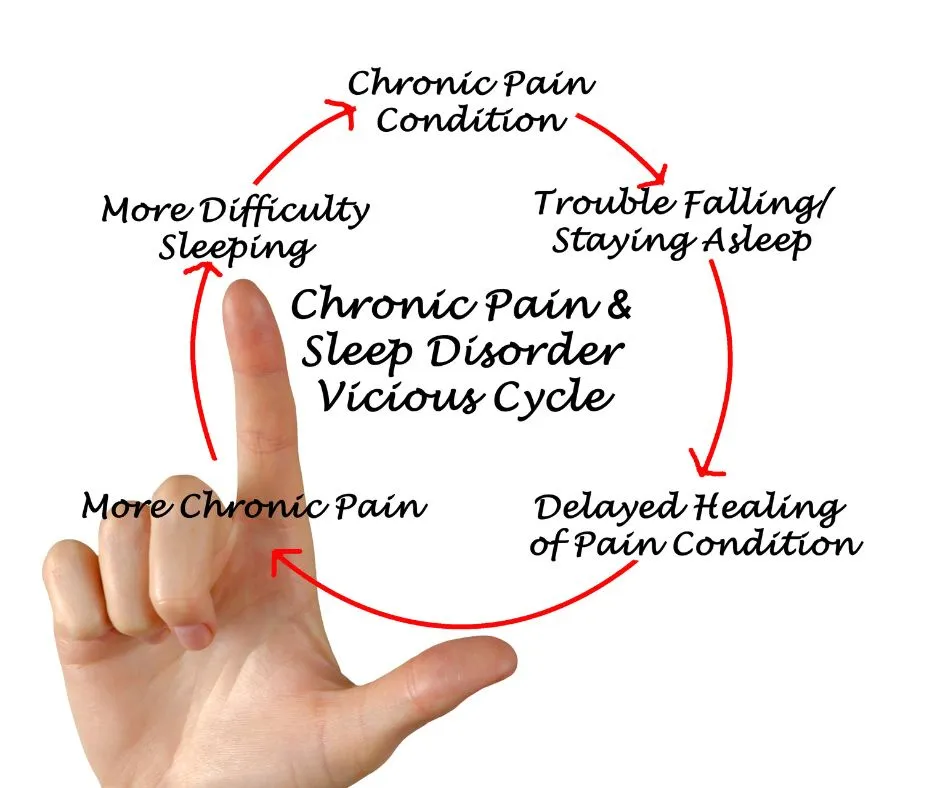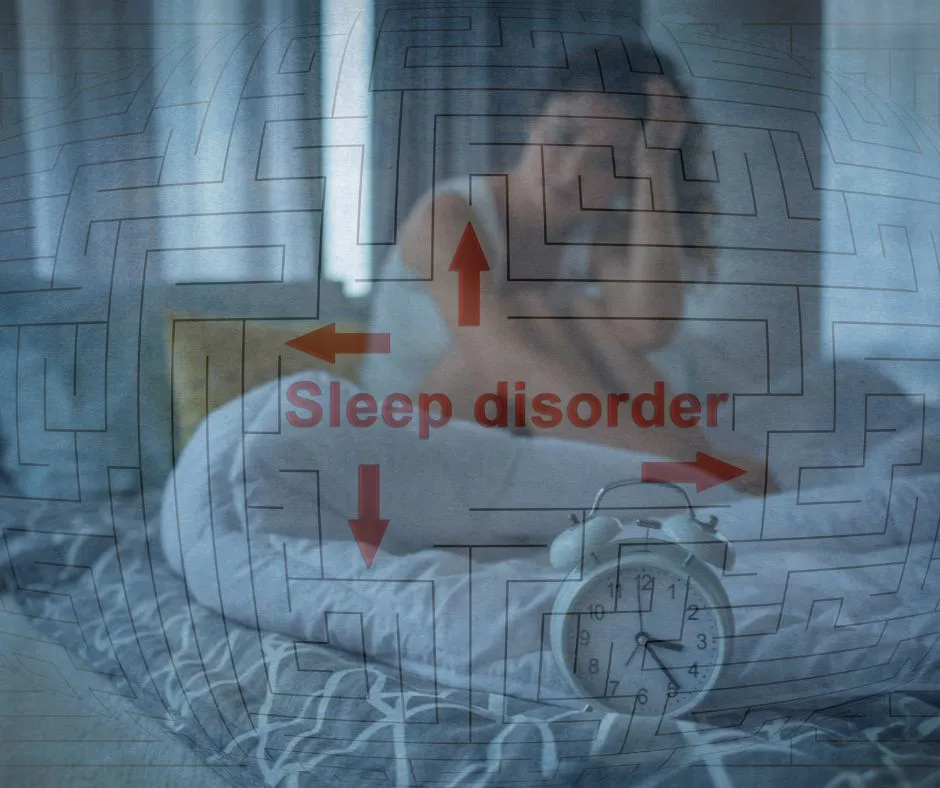Sleep disorders have become increasingly common in our fast-paced society. As the number of people suffering from sleep disorders rises, it is crucial to understand the symptoms, causes, and available treatment options. This article will delve into the mystery of sleep issues, exploring various sleep disorders symptoms, causes of sleep disorders, and treatment options. Armed with this information, you’ll be better equipped to identify and address any sleep issues affecting you or a loved one.
Understanding Sleep Disorders

A sleep disorder is a condition that disrupts your usual sleep pattern, affecting both the quality and duration of your sleep. Several types of sleep disorders include insomnia, sleep apnea, restless leg syndrome, and narcolepsy. Each condition presents unique symptoms and challenges, which can negatively impact an individual’s physical, emotional, and mental well-being.
Sleep disorders can be challenging to diagnose and treat because their symptoms often overlap with other health issues. To identify the specific disease, it is essential to recognize the unique sleep related symptoms associated with each condition.
Recognizing Sleep Disorders Symptoms
The symptoms of sleep disorders can be subtle and overt, making them difficult to recognize.
The following are common sleep disorders symptoms that may indicate the presence of a sleep disorder:
Difficulty falling asleep or staying asleep (insomnia)
Loud snoring or choking sounds during sleep (sleep apnea)
Uncontrollable urges to move legs during rest (restless leg syndrome)
Excessive daytime sleepiness or sudden episodes of falling asleep (narcolepsy)
These symptoms can also manifest in other ways, such as mood swings, irritability, memory problems, and difficulty concentrating. If you or someone you know is experiencing any of these symptoms, it is crucial to consult a healthcare professional for proper evaluation and diagnosis.
Exploring the Causes of Sleep Disorders

There is no single cause of sleep disorders; instead, they result from a complex interplay of factors that vary from person to person. The following are some of the most common causes of sleep issues:
Lifestyle factors: Poor sleep hygiene, such as an irregular sleep schedule, excessive screen time, and consuming stimulants like caffeine and nicotine, can contribute to sleep issues.
Environmental factors: A noisy or uncomfortable sleep environment can lead to sleep disturbances.
Medical conditions: Chronic pain, depression, anxiety, and certain medications can interfere with healthy sleep patterns.
Genetic factors: Some sleep issues, such as narcolepsy and restless leg syndrome, have a genetic component.
Understanding the specific causes of your sleep disorder is crucial for developing an effective treatment plan.
Sleep Disorders Treatment Options

The appropriate sleep disorder treatment will depend on the type and severity of the disorder, as well as the individual’s unique needs and preferences. Treatment options may include:
Behavioural therapies: Cognitive-behavioral therapy (CBT) has been proven effective in treating insomnia by helping individuals develop healthy sleep habits and address negative thoughts and behaviours surrounding sleep.
Medications: Prescription medications may be used to treat specific sleep issues, such as insomnia, narcolepsy, or restless leg syndrome.
Continuous positive airway pressure (CPAP) therapy: For individuals with sleep apnea, CPAP therapy involves wearing a mask over the nose and/or mouth during sleep to maintain continuous airflow, preventing airway obstruction.
Lifestyle changes: Implementing a regular sleep schedule, creating a comfortable sleep environment, and practising relaxation techniques can help improve sleep quality for those with sleep issues.
Alternative therapies: Some individuals may find relief through therapies like acupuncture, massage, or herbal remedies. However, consulting with a healthcare professional before starting any alternative treatments is essential.
Surgery: In some cases, surgical interventions may be necessary to address the underlying cause of the sleep disorder. For instance, individuals with severe sleep apnea caused by a physical obstruction may benefit from surgery to remove or reduce the block.
Managing Sleep Disorders
Living with a sleep disorder can be challenging, but there are steps you can take to manage your symptoms and improve your overall quality of life.
Consider the following strategies:
Establish a consistent sleep schedule: Going to bed and waking up simultaneously each day can help regulate your body’s internal clock, making it easier to fall asleep and wake up feeling refreshed.
Create a sleep-friendly environment: Ensure your bedroom is calm, dark, and quiet to promote optimal sleep. Investing in a comfortable mattress and pillows can also significantly improve your sleep quality.
Limit screen time before bed: The blue light emitted by electronic devices can interfere with your body’s production of melatonin, a hormone that helps regulate sleep. Try to avoid screens for at least an hour before bedtime.
Engage in relaxation techniques: Deep breathing exercises, progressive muscle relaxation, and meditation can help calm your mind and body, making it easier to fall asleep.
Exercise regularly: Regular physical activity can help improve sleep quality and reduce stress levels. Aim for at least 30 minutes of moderate exercise most days of the week but avoid exercising too close to bedtime, as it may make it harder to fall asleep.
Seek support: If you are struggling with a sleep disorder, reach out to friends, family, or a support group for encouragement and understanding. Sharing your experiences can help you feel less isolated and may provide valuable insights and coping strategies.
Conclusion
Unlocking the mystery of sleep disorders is an ongoing process that involves understanding the symptoms, causes, and treatment options available. By recognizing the unique symptoms of sleep disorders and seeking appropriate medical intervention, individuals suffering from sleep issues can access effective treatment options that will improve their sleep quality and overall well-being. Maintaining an open dialogue with healthcare professionals and prioritizing self-care strategies to successfully manage sleep and lead a healthier, happier life is essential.
Watch video

